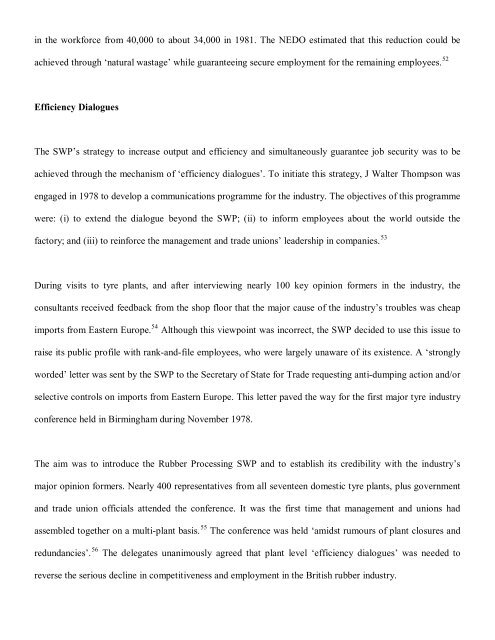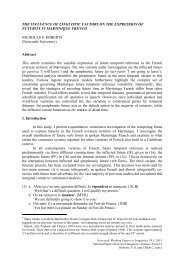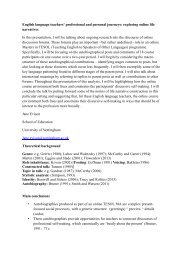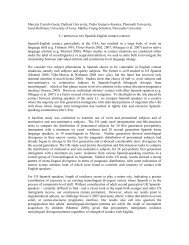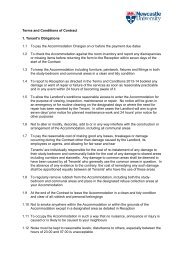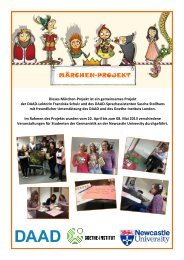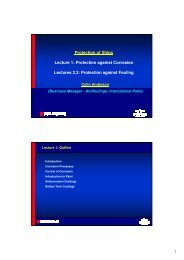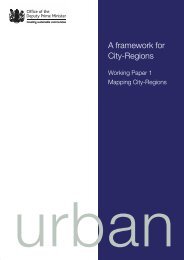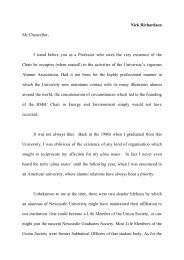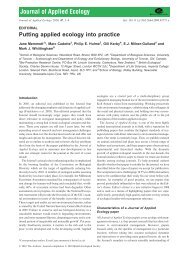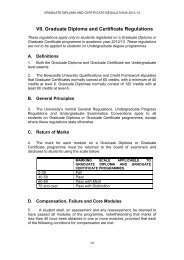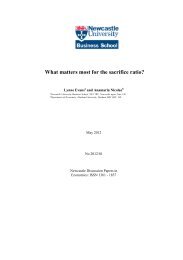The decline of the British tyre industry - Newcastle University
The decline of the British tyre industry - Newcastle University
The decline of the British tyre industry - Newcastle University
Create successful ePaper yourself
Turn your PDF publications into a flip-book with our unique Google optimized e-Paper software.
in <strong>the</strong> workforce from 40,000 to about 34,000 in 1981. <strong>The</strong> NEDO estimated that this reduction could be<br />
achieved through ‘natural wastage’ while guaranteeing secure employment for <strong>the</strong> remaining employees. 52<br />
Efficiency Dialogues<br />
<strong>The</strong> SWP’s strategy to increase output and efficiency and simultaneously guarantee job security was to be<br />
achieved through <strong>the</strong> mechanism <strong>of</strong> ‘efficiency dialogues’. To initiate this strategy, J Walter Thompson was<br />
engaged in 1978 to develop a communications programme for <strong>the</strong> <strong>industry</strong>. <strong>The</strong> objectives <strong>of</strong> this programme<br />
were: (i) to extend <strong>the</strong> dialogue beyond <strong>the</strong> SWP; (ii) to inform employees about <strong>the</strong> world outside <strong>the</strong><br />
factory; and (iii) to reinforce <strong>the</strong> management and trade unions’ leadership in companies. 53<br />
During visits to <strong>tyre</strong> plants, and after interviewing nearly 100 key opinion formers in <strong>the</strong> <strong>industry</strong>, <strong>the</strong><br />
consultants received feedback from <strong>the</strong> shop floor that <strong>the</strong> major cause <strong>of</strong> <strong>the</strong> <strong>industry</strong>’s troubles was cheap<br />
imports from Eastern Europe. 54<br />
Although this viewpoint was incorrect, <strong>the</strong> SWP decided to use this issue to<br />
raise its public pr<strong>of</strong>ile with rank-and-file employees, who were largely unaware <strong>of</strong> its existence. A ‘strongly<br />
worded’ letter was sent by <strong>the</strong> SWP to <strong>the</strong> Secretary <strong>of</strong> State for Trade requesting anti-dumping action and/or<br />
selective controls on imports from Eastern Europe. This letter paved <strong>the</strong> way for <strong>the</strong> first major <strong>tyre</strong> <strong>industry</strong><br />
conference held in Birmingham during November 1978.<br />
<strong>The</strong> aim was to introduce <strong>the</strong> Rubber Processing SWP and to establish its credibility with <strong>the</strong> <strong>industry</strong>’s<br />
major opinion formers. Nearly 400 representatives from all seventeen domestic <strong>tyre</strong> plants, plus government<br />
and trade union <strong>of</strong>ficials attended <strong>the</strong> conference. It was <strong>the</strong> first time that management and unions had<br />
assembled toge<strong>the</strong>r on a multi-plant basis. 55 <strong>The</strong> conference was held ‘amidst rumours <strong>of</strong> plant closures and<br />
redundancies’. 56<br />
<strong>The</strong> delegates unanimously agreed that plant level ‘efficiency dialogues’ was needed to<br />
reverse <strong>the</strong> serious <strong>decline</strong> in competitiveness and employment in <strong>the</strong> <strong>British</strong> rubber <strong>industry</strong>.


